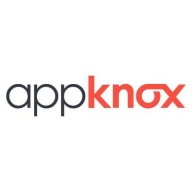

SonarQube Cloud and Appknox compete in the code quality and security analysis domain. SonarQube Cloud has a broader appeal due to its widespread adoption and integration capabilities, whereas Appknox is noted for its comprehensive security assessment features.
Features: SonarQube Cloud integrates well with popular CI/CD tools, provides automated code review, and supports various programming languages, making it ideal for developers prioritizing code quality and compliance. Appknox focuses on specialized mobile security assessments, offers advanced vulnerability detection, and provides robust tools specifically for security analysis.
Ease of Deployment and Customer Service: SonarQube Cloud ensures an easy deployment process with cloud-based access and seamless integration with developer tools, supported by excellent documentation and resources. Appknox, while offering proactive customer service, may require a more in-depth setup for full utilization of its security features, focusing on a strong deployment model that addresses specific security needs.
Pricing and ROI: SonarQube Cloud is cost-effective, offering competitive pricing and streamlined setup conducive to a greater ROI through its scalable model, especially suitable for continuous integration systems. Appknox may involve a higher initial cost but delivers exceptional ROI for businesses emphasizing security, effectively mitigating risks through its advanced mobile security focus, emphasizing investment in targeted security solutions.

Appknox is a comprehensive mobile security testing platform empowering organizations to identify and fix security vulnerabilities in mobile apps swiftly.
With Appknox, users gain access to a robust suite of tools designed to enhance mobile app security. This solution provides both static and dynamic analysis, enabling thorough testing processes. It is suited for developers, security analysts, and businesses aiming for high-security standards in their app offerings. Appknox identifies critical vulnerabilities, ensuring apps are secure before deployment, which safeguards both corporate data and user information.
What are the key features of Appknox?Appknox is implemented across multiple industries such as finance, healthcare, and e-commerce. These sectors require stringent security measures due to the sensitive nature of their data. Appknox allows these industries to safeguard information and comply with regulatory standards, providing a safer user experience.
SonarQube Cloud offers static code analysis and application security testing, seamlessly integrating into CI/CD pipelines. It's a vital tool for identifying vulnerabilities and ensuring code quality before deployment.
SonarQube Cloud is widely used for its ability to integrate with tools like GitHub, Jenkins, and Bitbucket, providing critical feedback at the pull request level. It's designed to help organizations maintain clean code by acting as a quality gate. This service supports development methodologies including sprints and Kanban for ongoing vulnerability management. While appreciated for its dashboard and integration capabilities, some users find initial setup challenging and note the need for enhanced documentation. The recent addition of mono reports and microservices support offers deeper insights into security and code quality, though container testing limitations and false positives are noted drawbacks. Manual intervention is sometimes required to address detailed reporting, with external tools being necessary for comprehensive analysis. Notifications for larger teams during serious issues and streamlined integration of new features are also areas of improvement.
What are the key features of SonarQube Cloud?In specific industries, SonarQube Cloud finds application in finance and healthcare where code integrity and security are paramount. It allows teams to identify critical vulnerabilities early and ensures that software development aligns with industry regulations and standards. By continuously analyzing code, it aids organizations in deploying secure and reliable applications, fostering trust and compliance.
We monitor all Static Application Security Testing (SAST) reviews to prevent fraudulent reviews and keep review quality high. We do not post reviews by company employees or direct competitors. We validate each review for authenticity via cross-reference with LinkedIn, and personal follow-up with the reviewer when necessary.